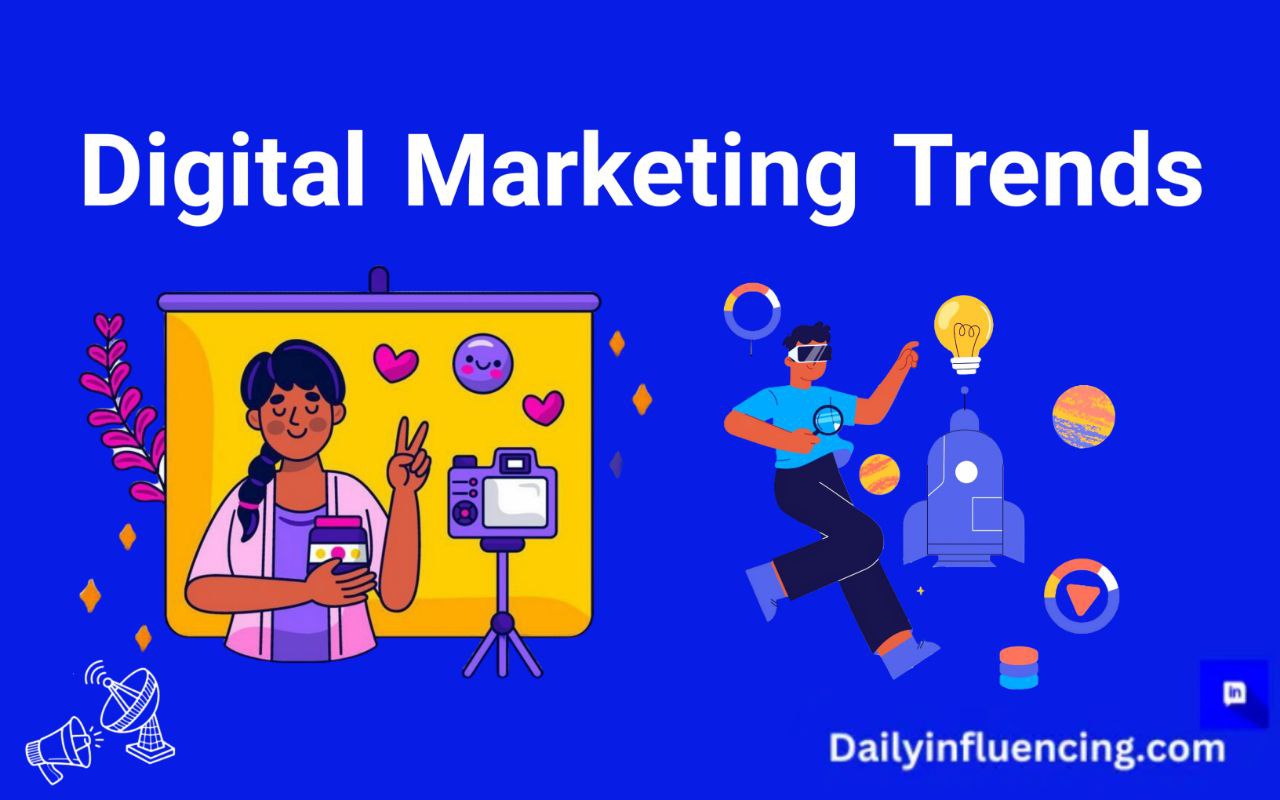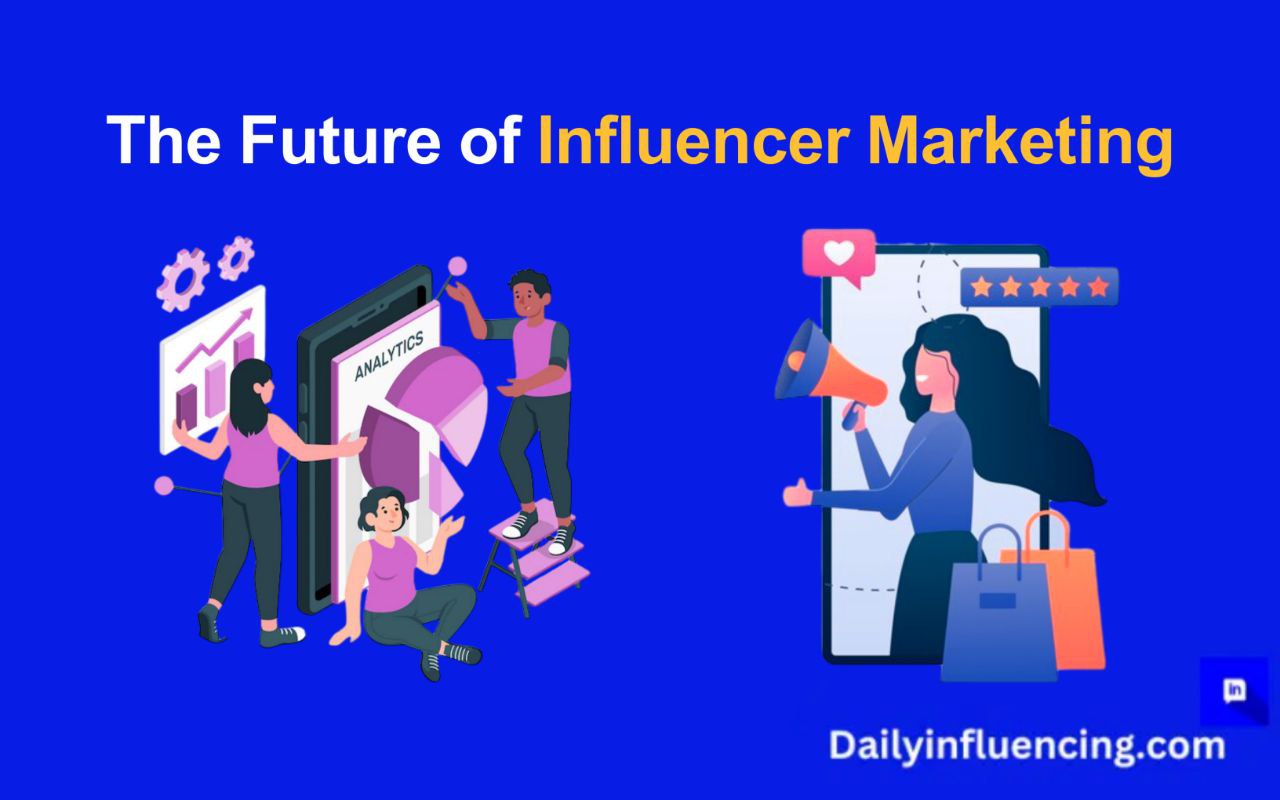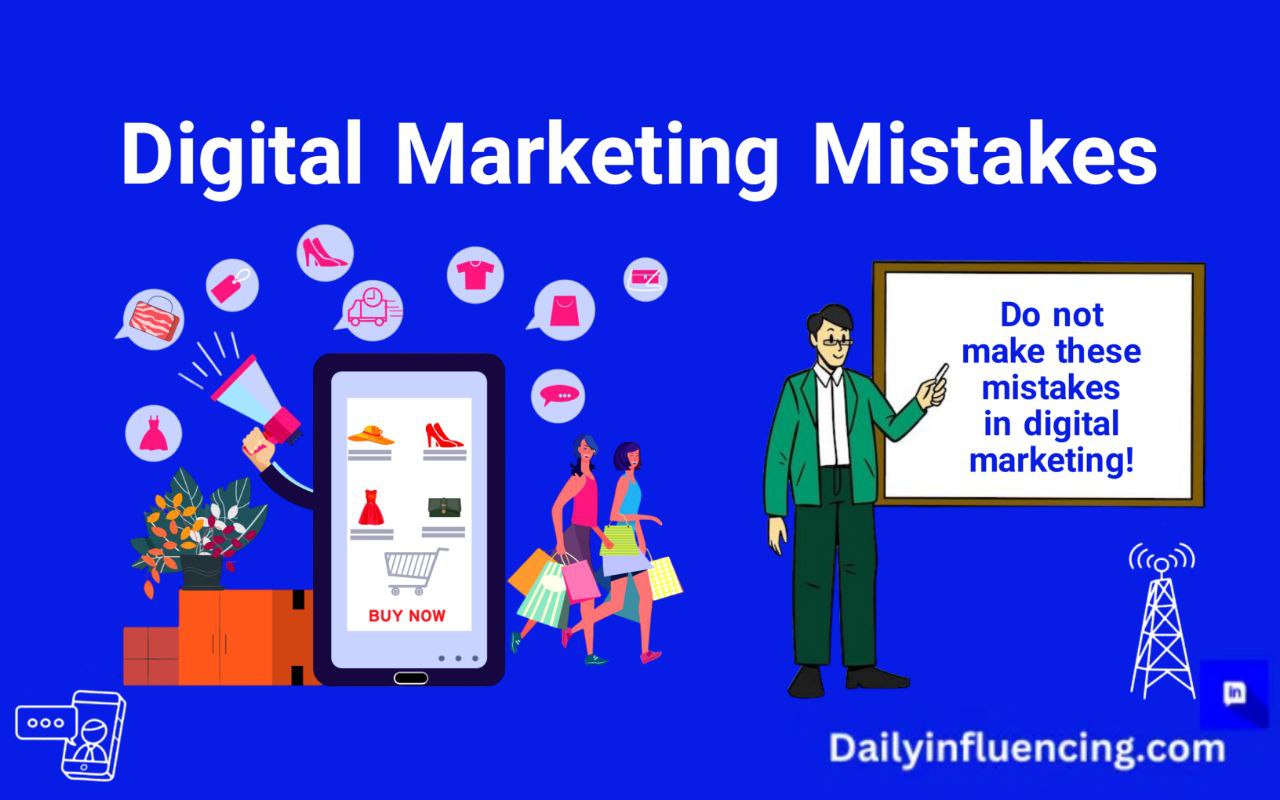
Digital marketing trends are shaping the way businesses engage with their audiences. Digital marketing is buzzing with innovative strategies and technologies designed to help brands stay competitive. Whether you’re a business owner, marketer, or aspiring entrepreneur, staying updated on these trends is vital for your business success.
The rise of artificial intelligence, the expansion of video marketing, and the growing emphasis on personalization are just a few highlights in this dynamic field. These trends not only help brands stand out but also enhance the customer experience, making it easier for businesses to connect with their audiences.
In this article, we’ll explore the top digital marketing trends to watch out for in 2025. From embracing data-driven insights to leveraging emerging platforms, these trends will provide you with actionable ideas to refine your marketing strategy. Let’s dive in and discover what the future holds for digital marketing.
What Are Digital Marketing Trends?

Digital marketing trends refer to the latest strategies, tools, technologies, and practices that shape how businesses promote their products or services online.
These trends are influenced by changes in consumer behavior, technological advancements, and shifts in the digital landscape. Staying updated on these trends helps brands remain competitive, connect effectively with their target audience, and optimize their marketing efforts.
What Are Top Digital Marketing Trends To Use In 2025?

Here are trends to leverage on to enhance your business
1. Artificial Intelligence (AI) In Marketing
Artificial Intelligence is no longer a futuristic concept—it’s a game-changer in the world of digital marketing trends. AI can analyze data, predict customer behavior, and even automate repetitive tasks, making marketing campaigns more efficient.
For example, AI-powered chatbots can provide instant customer support, boosting satisfaction rates. Tools like predictive analytics also enable marketers to create personalized campaigns based on user preferences. As we move into 2025, incorporating AI into your strategy will not only save time but also improve ROI.
Why it matters:
Enhances personalization.
Streamlines content creation.
Provides valuable insights for decision-making.
To leverage this trend, invest in AI tools and platforms that align with your marketing goals.
2. Voice Search Optimization-Digital Marketing Trends
With the increasing popularity of smart devices like Alexa, Siri, and Google Assistant, optimizing for voice search is one of the hottest digital marketing trends. Unlike text searches, voice queries are more conversational, requiring a different approach to keyword optimization.
For instance, instead of targeting “best shoes,” a voice search query might be “Where can I buy the best running shoes near me?” This shift calls for creating content that answers specific questions in a natural tone.
Why it matters:
Voice search is projected to dominate online searches.
It improves accessibility for users.
It increases visibility for local businesses.
To get started, focus on long-tail keywords and question-based phrases in your content.
3. Short-Form Video Content

Video marketing remains a cornerstone of digital marketing trends, but in 2025, short-form content is taking center stage. Platforms like TikTok, Instagram Reels, and YouTube Shorts have made bite-sized videos more popular than ever.
These videos are engaging, easy to consume, and perfect for capturing attention in a world where people have shorter attention spans. Brands that create compelling short videos showcasing their products or services will find it easier to connect with their target audience.
Why it matters:
Increases engagement rates.
Appeals to younger demographics.
Boosts social media visibility.
Start experimenting with short-form video formats and track your performance metrics to see what resonates with your audience.
4. Personalization At Scale
Personalization has always been a buzzword in marketing, but it is now taking the next level. Brands are focusing on delivering personalized experiences at scale, thanks to advancements in technology and data analytics.
For example, instead of sending generic emails, you can craft messages tailored to each recipient’s preferences, browsing history, or purchase behavior. This trend goes beyond emails and extends to ads, product recommendations, and even website content.
Why it matters:
Builds stronger customer relationships.
Increases conversion rates.
Enhances customer loyalty.
Embrace tools like CRM systems and advanced analytics to create hyper-personalized marketing campaigns.
5. Influencer Marketing-Digital Marketing Trends

Influencer marketing is growing to become more authentic and niche-focused, making it a key part of digital marketing trends.
Instead of partnering with mega-influencers, brands are now collaborating with micro and nano-influencers who have smaller but highly engaged audiences and that is what dailyinfluencing can do for you .
These influencers often have a closer connection with their followers, which translates to higher trust and engagement rates. By aligning with influencers whose values match your brand, you can create more impactful campaigns.
Why it matters:
Drives authentic engagement.
Reaches niche audiences effectively.
Boosts brand credibility.
To succeed, focus on building long-term partnerships with influencers who align with your brand identity.
6. Sustainability and Ethical Marketing
Consumers are more conscious than ever about sustainability and ethical practices. Highlighting your brand’s commitment to these values is one of the most impactful digital marketing trends today.
Whether it’s using eco-friendly packaging, supporting social causes, or reducing carbon footprints, brands that prioritize sustainability will resonate more with their audiences.
Why it matters:
Appeals to socially conscious consumers.
Differentiates your brand in the market.
Builds trust and loyalty.
Ensure your sustainability efforts are authentic and transparent to avoid being accused of “greenwashing.”
7. Metaverse and Augmented Reality (AR)
The metaverse and AR are revolutionizing how brands interact with their customers. These immersive technologies are among the most exciting digital marketing trends.
For instance, brands can create virtual showrooms or AR-powered apps that allow customers to “try on” products like clothes or makeup before buying. This enhances the shopping experience and reduces the likelihood of returns.
Why it matters:
Offers unique customer experiences.
Increases engagement and interactivity.
Positions your brand as innovative.
Start exploring ways to integrate AR and the metaverse into your marketing campaigns.
8. Social Media Commerce-Digital Marketing Trends
Social media platforms are no longer just for networking; they’re becoming full-fledged shopping destinations. This is a leading digital marketing trend, enabling users to discover and purchase products directly within apps like Instagram, Facebook, and TikTok.
This trend simplifies the buying process and makes it easier for brands to showcase their products to highly targeted audiences.
Why it matters:
Reduces friction in the customer journey.
Increases impulse purchases.
Leverages user-generated content.
Optimize your social media profiles for commerce by using shoppable posts and integrating payment solutions.
9. Data Privacy and Transparency
With the introduction of stricter data privacy regulations, brands need to prioritize transparency and ethical data collection. This shift is a critical digital marketing trend for 2025, as consumers demand more control over their personal information.
Clearly communicate how you collect, store, and use data, and always seek consent from your users. Building trust in this area will set you apart from competitors.
Why it matters:
Builds consumer trust.
Avoids legal repercussions.
Enhances brand reputation.
Use privacy-compliant tools and provide clear policies to maintain transparency.
10. Omnichannel Marketing-Digital Marketing Trends
Omnichannel marketing remains a cornerstone of digital marketing trends you can leverage in your business. However, consumers expect seamless experiences across all touchpoints, whether they’re browsing online, shopping in-store, or engaging on social media.
By integrating multiple channels and ensuring consistency, brands can provide a unified experience that keeps customers coming back.
Why it matters:
Increases customer retention.
Improves brand consistency.
Maximizes marketing ROI.
Invest in tools that help you manage and track customer interactions across various platforms.
Conclusion
The world of digital marketing trends is full of opportunities for businesses willing to adapt and innovate. From leveraging AI and voice search optimization to embracing sustainability and the metaverse, these trends can help your brand thrive in an ever-evolving digital landscape.
By staying informed and implementing these strategies, you’ll be well-equipped to connect with your audience, build lasting relationships, and achieve your marketing goals. Remember, the key to success lies in understanding your audience’s needs and delivering value through creative and authentic campaigns.
Stay ahead of the curve, and let these digital marketing trends guide you towards success!
Frequently Asked Questions
What is the biggest trend now in digital marketing?
Artificial intelligence (AI)
Short-form video content
Voice Search Optimization
Personalization at Scale
Influencer Marketing
Sustainability and Ethical Marketing
Metaverse and Augmented Reality (AR)
Social Commerce
Data Privacy and Transparency
Omnichannel Marketing
What is leverage in digital marketing?
With the whole world being on the internet, brands can benefit by putting out useful and informative content to engage their audience and regularly interact with them. Leveraging digital marketing through social media, search optimization, paid promotions, and other mediums is the best bet to drive brand presence.
What is zero click marketing?
In a zero-click search environment, marketers can expect organic website traffic to decrease since fewer users click off a SERP to a marketer’s website.




